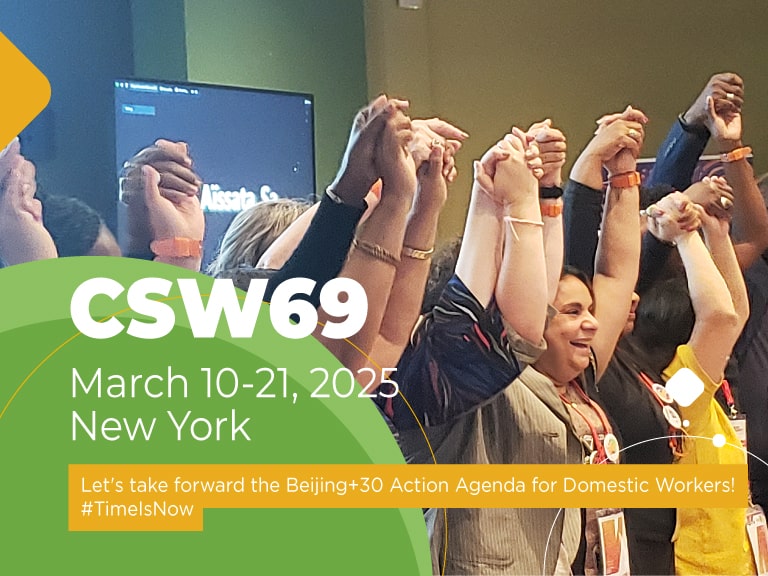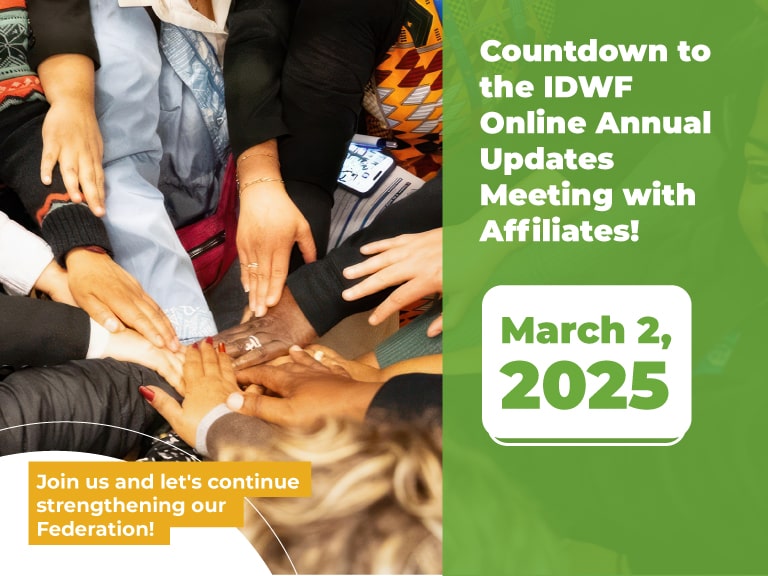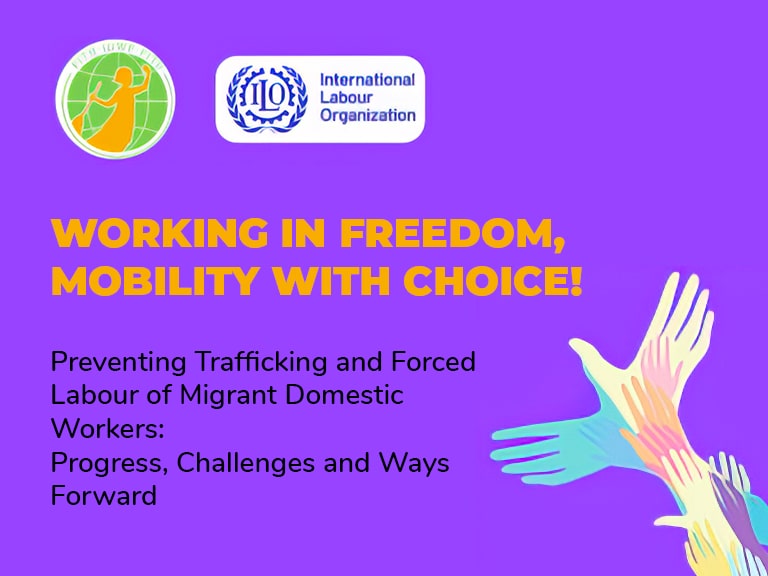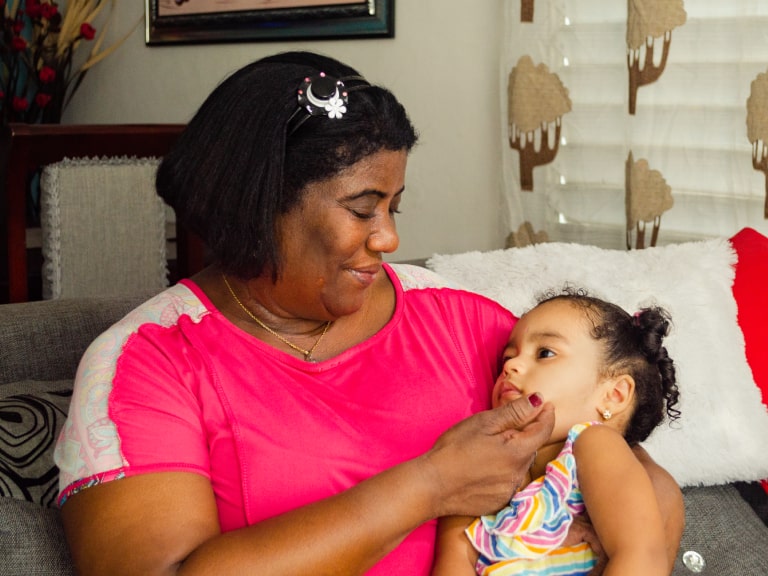- This event has passed.
We demand the respect and rights that other workers enjoy! Shirley Pryce’s speech at the IUF Congress
Read Shirley Pryce’s speech on Aug 31 at the 27th World Congress of the The International Union of Food, Agricultural, Hotel, Restaurant, Catering, Tobacco and Allied Workers’ Associations (IUF).
Details
Full speech of Shirley Pryce at the 27th World Congress of the IUF:
Good morning,
My name is Shirley Pryce. I come from Jamaica and I am the President of the Jamaica Household Workers’ Union. I myself have been working as a domestic worker for 31 years. I am also part of the Caribbean domestic workers network and a member of the Executive Committee of the International Domestic Workers Federation (IDWF).
Domestic work is deeply rooted in the history of slavery.
In many countries domestic workers are still not recognized as workers or are excluded from parts of labour protection. In Jamaica, for example, domestic workers are not covered by maternity leave benefits.
We are making all other work possible!
We are not part of the family – we are workers!
We demand the respect and rights that other workers enjoy!
More and more women from our region and other poor regions migrate to the global North and take up domestic work in order to support their families back home. They are increasingly subject of discrimination and attacks based on xenophobia. Because they are working in private homes, they are at high risk of abuse, which includes sexual harassment, rape and in some cases even murder. Violence at the work place is for us a major labour rights issue, and we are glad that this is now on the international agenda.
The ILO Convention 189 for domestic workers, adopted in 2011, gave us for the first time in history the recognition and same rights as other workers.
I am very proud that my country Jamaica ratified C 189 last year. We followed the example of Guyana, which ratified already in 2013. Worldwide 24 countries ratified the ILO Convention and 50 countries have enacted legal reform to enable domestic workers to have rights.
This has only been possible because domestic workers have been organizing – at all levels. We had and still have many allies who are supporting us. However, it was the IUF who paved the way for us into the international trade union movement – and we are grateful for that. Many IUF affiliates are also affiliated to the IDWF. So, we are also IUF.
I have been actively organizing domestic workers since 1991. Because of this, I was awarded “Caribbean Woman of the Year”. I am proud to have received the award, but giving awards is just not enough!
We have been suffering far too long by being excluded from labour rights. Migrant domestic workers are even more affected. Right wing populists are blaming migrant workers for stealing jobs and exploiting social protection systems to the disadvantage of national workers. Migrant workers are used as a scapegoat to divert from the devastating consequences of neo-liberal policies. We mustn’t let them get away with it! A workers is a worker, no matter what status the worker has in a country and migrant workers, among them many migrant domestic workers, must enjoy the same rights.
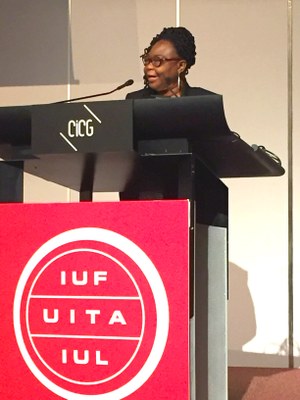
Without migrant domestic workers, in a city, like Geneva, the many CEOs and UN officials, would not be able to do their work:
we take care of their children, we iron their shirts, we clean their houses and we make sure that there is enough food in the fridge and on the table, when they come home.
We call on you at this Congress to support the resolution No. 7: “Equal rights for domestic workers through combating racism and xenophobia”.
We need the support of you, the IUF affiliates, to build strong trade union organizations.
We need the support of you, the IUF affiliates, to push for ratification of C 189 – and then to further support us in ensuring proper implementation of the ILO convention.
We need the support of you, the IUF affiliates, to raise awareness of the rights of domestic workers, especially migrant domestic workers and launching campaigns against discrimination of migrant workers and to combat racism and xenophobia.
Thank you very much!



